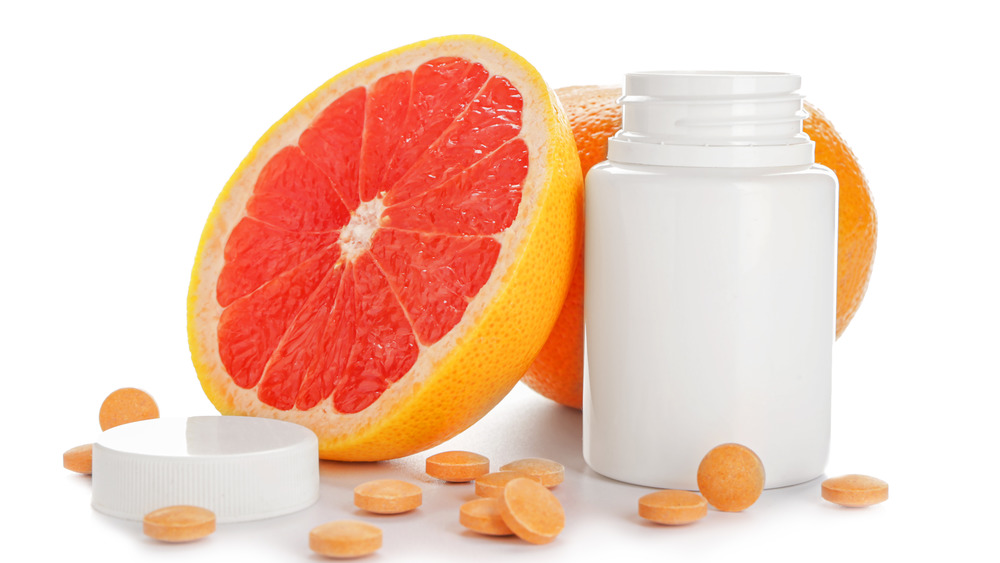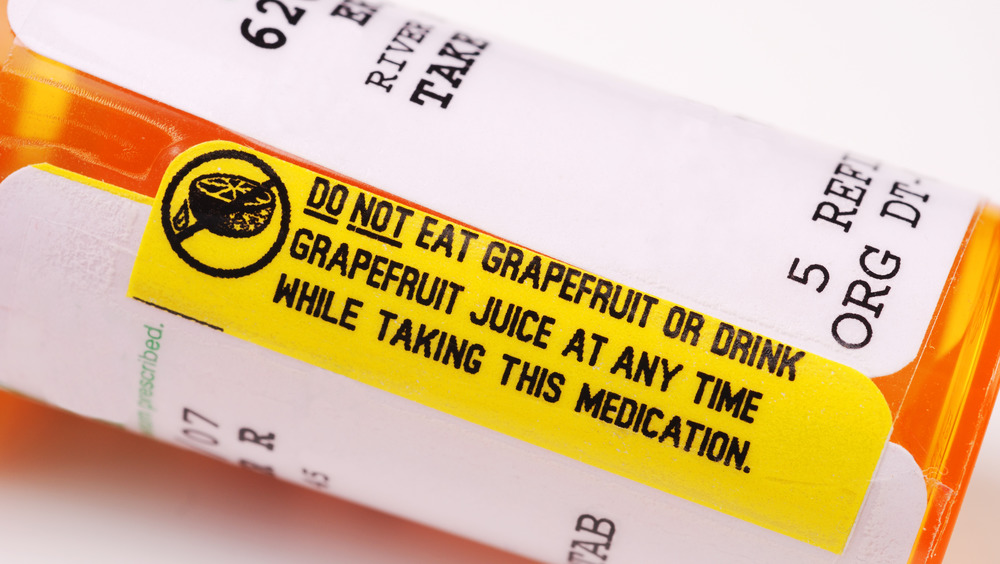The Real Reason Grapefruit Can Mess With Your Medication
There is no denying that modern medicine has worked to extend the average lifespan of people around the world. With medications and therapies to treat almost any illness, it's amazing what the science and medical communities have been able to accomplish. According to Harvard Health Publishing, the five aspects of a healthy lifestyle include: a well-balanced diet, adequate physical activity, healthy body weight, no smoking, and moderation in alcohol intake. Fresh fruits are a known part of a well-balanced diet, so you would assume eating a grapefruit or drinking grapefruit juice could do no harm. However, in certain cases, consumption of grapefruit may not be recommended. Here's why.
Seema Sarin, M.D., Director of Lifestyle Medicine for EHE Health, spoke to Health Digest stating, "Grapefruit has a long list of nutritional benefits. It is a great source of vitamins A and C, and is low in calories, making it a go-to for anyone on a diet." She does note, however, that people taking certain medications should stay away from the colorful fruit. "Grapefruit has an impact on the way your body metabolizes or absorbs certain drugs. Taking both at the same time could result in potentially dangerous consequences."
In fact, the U.S. Food and Drug Administration has required certain over-the-counter and prescription medications to include a warning against consuming grapefruit or grapefruit juice. Medications that can have detrimental effects if mixed with grapefruit include commonly prescribed cholesterol lowering drugs (statins), several blood pressure drugs, anti-arrhythmic drugs, and over-the-counter antihistamines like Allegra, to name a few.
How grapefruit can interact with your medications
So just how does grapefruit interact with certain medications? Dr. Sarin explains, "There is an enzyme in your small intestine called CYP3A4. This enzyme helps to metabolize certain drugs. Grapefruit blocks this enzyme, meaning that your body is not able to break the drug down sufficiently which can result in too much of the drug going into your system." She goes on to say that with excess levels of a medication in your system, "You can expect to experience unwanted side effects like liver and kidney damage. Some of these effects can be dangerous."
While most of the time grapefruit can increase the dose of drugs in your system, in some cases it can have the opposite effect, reducing the efficacy of the drug. "In your body, you have proteins that are known as 'drug transporters.' The job of these proteins is to help 'transport' a drug into certain cells in your body. Recent studies have shown that grapefruit can actually block those proteins and prevent them from doing their job," says, Dr. Sarin. This can, again, lead to potentially life-threatening consequences.
As always, it is recommended that you speak with your healthcare provider to review your medications and whether it is safe to consume grapefruit or grapefruit juice while taking them.


